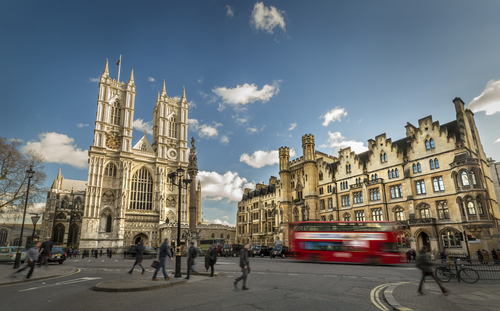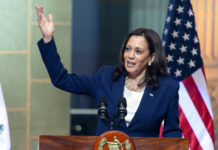
In a move that has sparked widespread debate and concern, the Pakistani flag was flown from Westminster Abbey during Holy Week, an act that has been interpreted by many as a symbol of Britain's complex relationship with its immigrant population and the broader issues of religious freedom and persecution. This event, occurring in the heart of London at one of the most significant Anglican churches, has ignited discussions on the implications of mass immigration and the UK's approach to addressing religious oppression abroad, particularly in countries like Pakistan where Christians face severe persecution.
The decision to hoist the Pakistani flag atop Westminster Abbey was made to commemorate Pakistan Day, marking the adoption of the first Constitution of Pakistan. According to the Pakistan High Commission, the event included special prayers for the progress and prosperity of Pakistan and its people, as well as for the continued friendship between Pakistan and the UK. The ceremony saw attendance from a large number of British citizens, churchgoers, and officials from the Pakistan High Commission, highlighting the significant Pakistani community within the UK.
• Westminster Abbey flies Pakistan’s flag
• Central London celebrates Islam’s Ramadan, not Christianity’s (our established religion) Easter
• The Mayor insists London is safe after a daylight butcheringWhat on earth is happening to London and our beautiful country? pic.twitter.com/AzmFwQwyuI
— Darren Grimes (@darrengrimes_) March 28, 2024
However, this act of deference has raised eyebrows, especially among those concerned with Pakistan's troubling record on religious freedom. Christians in Pakistan endure widespread persecution, facing challenges such as job discrimination, forced marriages, and violence against churches. Organizations like Global Christian Relief have documented these abuses, noting the large-scale kidnappings of young believers, attacks on churches during feast days, and societal discrimination that Pakistani Christians must navigate daily.
The flying of the Pakistani flag over Westminster Abbey, particularly during Holy Week, has thus been perceived by some as a chilling reminder of the UK's submission to mass immigration without adequate consideration of the values and practices of those being welcomed into the country. Critics argue that this event underscores a perceived indifference towards the plight of persecuted Christians in Pakistan, raising questions about Britain's commitment to religious freedom and human rights.
Pakistan’s flag flying from Westminster Abbey to celebrate some national day in that country. How was this ever signed off? pic.twitter.com/jsmP86Nku7
— Darren Grimes (@darrengrimes_) March 26, 2024
Moreover, the incident has reignited discussions on the impact of Britain's large Pakistani population, estimated at around 1.5 million. Some voices within the conservative community suggest that the growing number of immigrants from countries with starkly different cultural and religious norms poses challenges to the UK's social cohesion and identity, especially when elements of that population hold contemptuous views towards Christianity.
This controversy also highlights the broader issue of how Britain engages with countries known for persecuting religious minorities. The act of flying the Pakistani flag during a significant Christian observance has been interpreted by some as an offensive gesture, given Pakistan's brutal persecution of its Christian minority. It raises the question of whether such acts of "friendship" inadvertently overlook or even condone the oppressive practices of other nations.
As Britain navigates its complex relationship with its immigrant population and its stance on international religious freedom, events like the hoisting of the Pakistani flag at Westminster Abbey serve as a focal point for debate. They prompt reflection on the values that define British society, the importance of safeguarding religious freedoms, and the challenges of integrating diverse cultures in a way that respects the rights and dignities of all individuals.
In conclusion, while the intention behind commemorating Pakistan Day at Westminster Abbey may have been to celebrate international friendship and cultural diversity, the fallout from this event reveals deep-seated concerns about immigration, religious persecution, and the identity of modern Britain. As the nation moves forward, it will be crucial to address these issues thoughtfully and sensitively, ensuring that actions on the international stage reflect a commitment to human rights and the protection of all individuals, regardless of their faith.









